There are few things more frustrating to new dog owners than coming home after a long day’s work only to find a high-energy pup who wants nothing to do with sleep. When you’re tired and your dog isn’t, how can you make your pooch get to sleep?
As a trainer, I generally find that many dogs who don’t want to sleep have high energy levels.
The owner’s problem is either that their dog is normal to high energy and hasn’t had enough exercise, or their dog is high energy and has never been taught how to relax.
But not all dogs who won’t sleep are energetic pups. Some are generally anxious or high-strung dogs.
In this article, we’ll talk about some common reasons dogs don’t sleep and six main strategies you can use to address the problem.
Why Won’t My Dog Sleep?
As with all dog behavior problems, it’s smart to take a step back and think about why this behavior problem is occurring. Is your dog anxious? Scared? Excited? Energetic? If you try to exercise a dog that’s actually scared, you won’t see much improvement.
Understanding why your dog is struggling to fall asleep is an important first step.
Some common reasons that your dog won’t sleep through the night include:
- She needs to go to the bathroom. In this case, your best bet is to take her out right away, quietly reward her with a treat when she relieves herself, and go back to bed.
- She wants to play or has too much extra energy. If you don’t exercise your dog enough during the day, she might have a hard time staying asleep at night.
- She likes the attention. If you tend to coddle your pup or play with her when she wakes up, you might be teaching her that acting fussy around bedtime is a great way to get love and attention from you!
- She doesn’t know how to relax. Some dogs aren’t stressed per se, but they’ve never really been taught how to relax. These dogs might be hypervigilant about sounds, constantly seeking a “job,” or just “on edge.” These behaviors are most common in herding and guarding breeds, but can be displayed by any dog.If your pup can’t wind down, she will especially benefit from mental exercise and relaxation protocols.
- She’s scared, stressed, or anxious. Many dogs struggle to sleep because they’re not comfortable in their environment. In this case, you absolutely should comfort your dog and help her sleep.
To tell the difference between scared and attention-seeking, watch your pup’s body language. A dog that’s scared will show calming signals, might move low to the ground, and might move very slowly or very quickly.
If you’re confused, err on the side of comforting your dog. If that makes her sleep more, then keep doing it. If that makes her sleep less and seek more attention, then you should teach her when is a good time for cuddles and when isn’t.
You can see how, in some cases, the solution for one problem can cause another.
That’s why it’s so important to take some time to figure out why your pup can’t fall asleep or can’t sleep through the night. Misunderstanding the problem could create a bigger one!
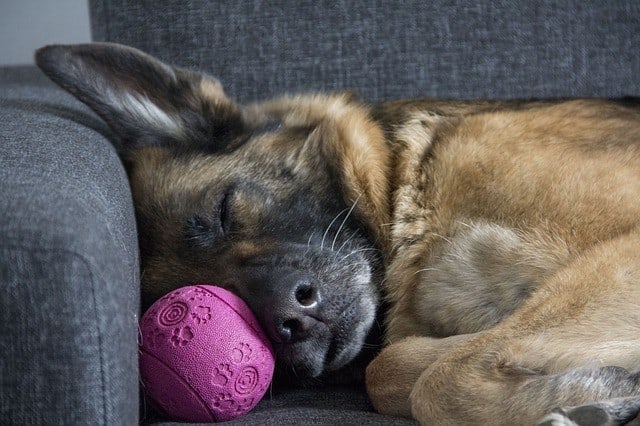
Six Strategies to Make a Dog Sleep
When you’re trying to help a dog sleep, it’s best to take a multi-pronged approach. For many dogs, simply playing calming music won’t be enough.
It’s also helpful to focus on the fact that your dog is having a hard time relaxing and falling asleep, rather than thinking that your dog is keeping you up or refusing to fall asleep. This mindset will help you problem-solve and soothe your dog, rather than getting frustrated.
These strategies are listed in order of how effective I find them to be when working with clients. You might notice that the “easiest” strategies are last – that’s because the most time-intensive tasks are generally most helpful.
Strategy One: Exercise Your Dog to Help Her Sleep
The biggest problem for most pet dogs these days is that they don’t get enough exercise.
Any dog breed that was once used for hunting, herding, guarding, or “work” of any sort should get far more than just a few on-leash walks per day. This includes many popular breeds like Golden and Labrador Retrievers, German Shepherds, Border Collies, Australian Shepherds, Pointers, and most Hounds.
For example, in a typical week, my four-and-a-half-year-old border collie gets several runs, agility practices, nosework practices, and off-leash hikes.
This keeps him sane – if he just gets a few walks per day for a few days in a row, he starts showing problem behaviors like chewing and barking.
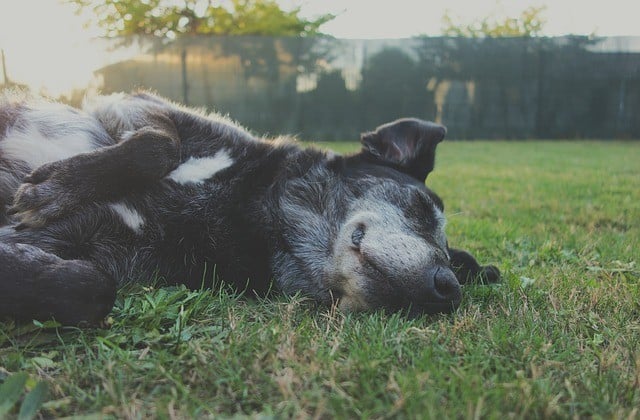
We discussed how to tire out your pup mentally and physically when we talked about how to keep your dog from getting bored, but here are a few quick reminders to help you get some ideas:
- Puzzle Toys. Puzzle toys are a great way to tire your pup out mentally while you work. Working for food is fun for most dogs. The biggest bonus? Puzzle toys don’t require much work on your end beyond pouring food into a toy. You can also build your own, instead of purchasing new toys if you’re on a tight budget.
- Canine Games. The mental workout involved in games is exhausting for dogs. Many dogs will benefit from a variety of physical and mental games rather than just playing fetch for hours.
- Running With Your Dog. If you don’t mind exercising yourself while you tire out your dog, running together is a great way to exhaust your pup so she’ll sleep through the night. Canicross can also be a great new hobby for pooch and human partner joggers.
- Sniffing For Truffles. Sniffing for any hidden object is incredibly tiring for your dog, without requiring much energy from you.
- Treibball. This fun sport taps into your pup’s instinct to herd and chase. It’s a great physical and mental workout.
- Hire a Dog Walker. Dog walkers can help exercise your dog while you work, letting you come home to a tired pup.
This is a sponsored placement, in which an advertiser pays a fee to be featured in this article. Learn more
$15OFF

Get $15 off your first Wag! dog walking service when you book through K9 of Mine!
If your dog’s only exercise is a leashed walk or playtime in the backyard, there’s a good chance she won’t sleep because she’s not tired.
However, if your dog already plays fetch for hours per day or otherwise gets a lot of exercise, it’s possible that your dog simply doesn’t know how to relax.
This sounds strange, but sometimes dogs who get a lot of playtime with their owners never learn how to just be still. That takes us to our next strategy for helping a dog sleep.
Strategy Two: Teach Your Dog to Relax
Some dogs seem to come without an off switch. I personally own one. So how did I get Barley to lie quietly under my chair while I work for hours from coffee shops?
My secret isn’t endless exercise, though keeping Barley sufficiently exercised is a huge part of my success. Rather, it is Karen Overall’s Relaxation Protocol.
This fifteen-day protocol teaches your dog to lie calmly on a bed, towel, or blanket for increasingly longer periods of times through scenarios which become increasingly more distracting. It’s one of my favorite skills to teach new clients, and it is incredibly helpful for dogs that won’t sleep.
While the goal of Karen Overall’s Relaxation Protocol is not to teach your dog to sleep, it’s helpful when teaching your dog to relax.
Since many dogs that won’t sleep are high-strung and anxious, it’s worth taking a few minutes per day to train your dog how to relax.
Strategy Three: Give Your Dog a Quiet Place to Sleep
Have you ever tried to fall asleep while people are talking or watching TV?
Although some people have no problem with this, it’s hard for many people to sleep when their environment is loud or “busy.” This is especially true if you’re not all that tired.
With this in mind, try giving your pup a quiet place to sleep. Many dogs like being near their people, so a crate or bed in a bedroom can keep everyone happy. Especially if you’ve got guests over and you want your pup to sleep, it’s going to help to give your pup a quiet place to go.

Creating a quiet “den” space for your dog doesn’t have to be expensive, ugly, or time-consuming. My dog Barley happily curls up under beds or tables if we give him a blanket or towel to sleep on – he actually prefers this instead of a big, cushy dog bed.
When your dog does fall asleep, take note of where she is and what her sleeping space is like. If you’ve got a giant fluffy bed in a dark crate and she chooses to sleep on the cool tile in your kitchen, your problem might be a mismatch between your dog’s preferences and her sleeping arrangements.
Giving your dog some quiet time to wind down before bed will also help her relax into sleep instead of pacing, panting, or whining while you’re trying to sleep.
Strategy Four: Give Chew Toys to Help Your Dog Relax and Sleep
Chewing and licking can be very soothing for dogs – imagine a baby sucking on a pacifier before bed. Chewing can also help your dog relax at night, but don’t expect a few chew toys to make your dog sleep.
Rather than reaching for hard chew toys like Nylabones, pick out a softer chew toy. This can help your dog really focus on the toy instead of getting discouraged or bored.
Stuffed Kongs are one of my favorite chew toys to help a dog sleep, but you might want to try several different chew toys to figure out what helps your dog sleep most.

Strategy Five: Play Calming Music to Help Your Dog Sleep
There’s some research out there that shows that music can help dogs relax and sleep.
You can purchase calming CDs specially-compiled for dogs. I prefer to use YouTube videos, since they’re free and I can swap them out day after day.
White noise, meditation music, or music made for dogs can all help your pup relax and sleep. My favorite is an eight-hour yoga meditation track that’s very soothing, full of chimes and soft bird chirps.
Simply playing music probably won’t fix all of your problems, but it can help take the edge off of your dog’s stress and help her sleep.
Strategy Six: Supplements to Help Your Dog Relax and Sleep
If your dog is struggling to sleep, it’s probably at least partially due to stress.
There are a wide variety of products available that can help de-stress your dog, from over-the-counter pheromone products to chewable calming dog treats. Talk to your vet about supplements before getting started. Since they’re all different, some supplements might work better for your pup than others.
I’ve tried several different supplements to calm Barley down, and honestly I can’t tell much of a difference in his behavior on any of them.
I think of supplements like a cup of tea. They help your dog relax a little bit, but won’t fix a larger problem.
Some supplements that might help your dog sleep include:
- Composure. These chewable treats include l-theanine, colostrum, and thiamine. These treats were used at the shelter I used to work for to help calm high-stress dogs.
- Quiet Moments Calming Aid. These treats include melatonin and l-tryptophan, chemicals that help you sleep. L-tryptophan is the secret behind why turkey makes you sleepy! They also include thiamine, also known as Vitamin B, which helps calm dogs, horses, and humans.
- Adaptil Collar: These collars slowly release Dog Appeasing Pheromone (DAP), which is a synthetic version of the hormone that mother dogs release during nursing (they come in the form of a spray and plug-in wall diffuser too). While many owners have mixed experiences when it comes to the efficacy of Adaptil diffusers, it certainly doesn’t hurt to try.
- Rescue Remedy: this liquid can be dropped into your pup’s water, onto a treat, or even directly onto her belly. It’s sold as a homeopathic treatment and is largely made out of flower extracts.
Be sure to take the time to research and talk to your vet before spending money on supplements. Again, these supplements are unlikely to make your dog sleep on their own.
Helping a dog sleep doesn’t have to be a full-time job, but don’t expect a few supplements or chew toys to solve your problem. If exercise and relaxation isn’t helping, you might want to contact a vet or animal behavior consultant to get help with helping your dog sleep.
Have you ever dealt with a pup that couldn’t reach full snooze level? How did you handle it? Let us know in the comments!
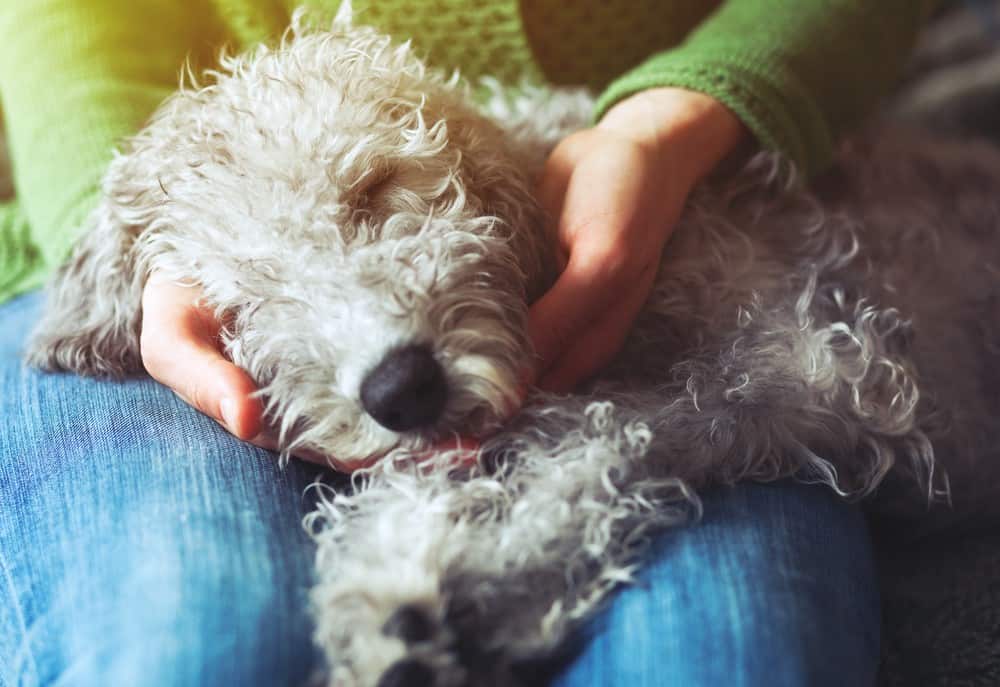



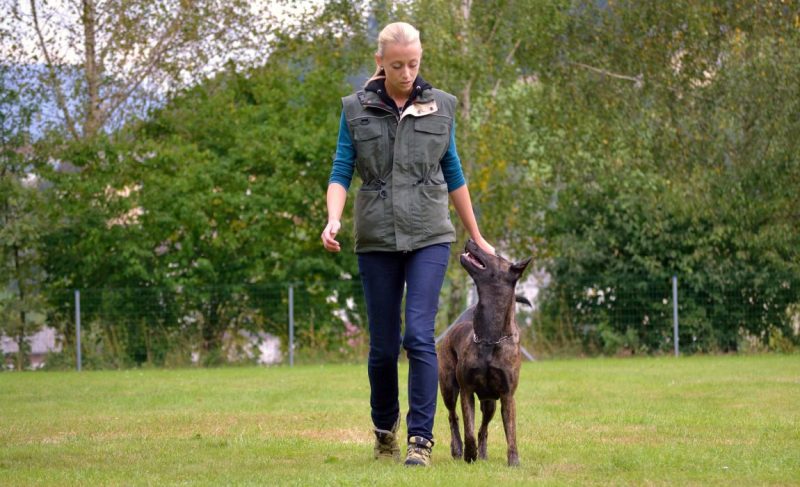
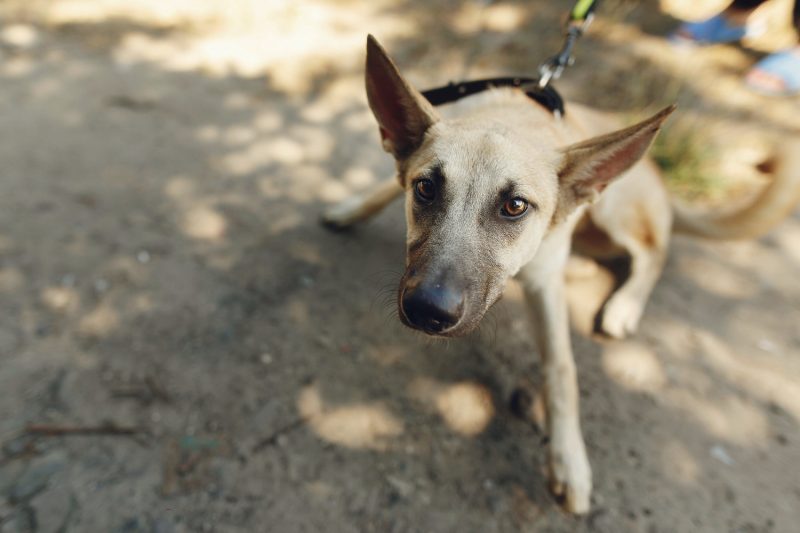
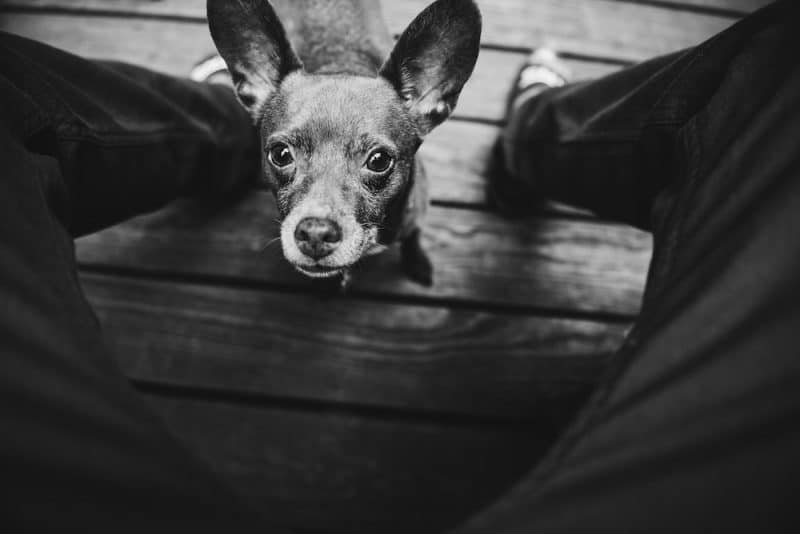

Leave a Comment